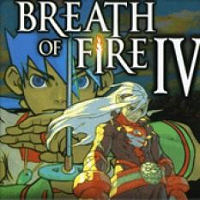
Possibly the apex of traditional style of RPGs. BoF4's got it all, with a warm and expressive world, incredible mastery of spritework, a fitting soundtrack, solid battle system with mild customization, plenty of enemy variety and tons of side activities.
The dual protagonist plotline is the game's most memorable feature. The Fou-Lu segments, aside from being really cool setpieces with incredible music, offer a good counterpart to Ryu's often mundane adventures and a reason to look forward to the latter part of the game where Ryu's party sets foot on the western continent. Juxtaposition between Ryu's unhurried journey and Fou-Lu's manic scramble, along with the situations and people they meet on the way, culminates in a truly unforgettable finale as they, two sides of the same being, make arguments to each other of the aspects of humanity they have seen along the way.
Breath of Fire IV is a traditional RPG journey through and through and it is difficult to imagine a more full one than this. Just a fully quality experience.
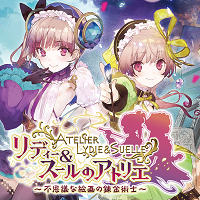
Game of ultimate alchemic freedom. Providing lower stakes than ever before, Atelier Lydie & Suelle is just about restoring worlds within paintings with no time limit or greater objective. In a way it feels like a bit of the original Salburg DNA is mixed in with the linear scenario of modern Ateliers, as the game's ending and your goal as an alchemist is the natural result of your actions.
Gameplay's aces. Gathering fields look incredible and are nice and varied both within and without the paintings. Evolved version of alchemy tetris is a very intuitive and good system to play with, and battles offer a lot thanks to frontrow/supporter combo mechanics, many monsters to hunt for their materials, a couple boss checks in the plot that provide an appropriate wall for you to climb, and a large array of postgame bosses that look fully impossible until you master the way of using the interplay of alchemy and combat systems to your benefit.
Lydie and Suelle are a charming pair of protagonists and there's also a lot of characters in town to interact with, returnees from previous Mysterious games and fresh faces both. Writing team's on point, with many genuinely funny scenarios in character events and the power of alchemy at ever increasing, possibly irresponsible(?) highs...there's also gravitas afforded to the moments that need it, but by and large this is a lighthearted one. Many have tried, but the devs behind Atelier LS have managed to create a genuinely amazing sandbox game.
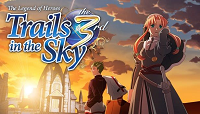
Trails in the Sky series entry! Taking place in the mid-sized town of Rolent in the age of Orbal Revolution, you start off very small as a local professional Bracer (read: problem solver) but as things tend to go the storyline's twists and turns will have you go all over the continent of Liberl to solve the central mystery connected to everything that is happening and, of course, do a hundred other things under the sun.
A notable feature is the worldbuilding, as NPC chatter updates constantly and even the most minor of characters live their own lives, travel around and such. It is a very robust setting that will feel like home by the time you bridge the gap from the first game FC to the second one, SC. Main cast of characters is a great one that has a nice rapport with each other, with protagonist Estelle's character arc a particular highlight as she undergoes believable growth from a rambunctious youth to the dependable leader and moral core of the party.
FC and SC together present a complete story, with 3rd serving as an extended epilogue and curtain call. And what a game it is! Featuring an unique structure of a dungeon crawl that has extended character vignettes behind actual "doors", a large amount of the setting building is paid off and character arcs satisfactorily concluded, with more tantalizing seeds planted for future subseries of the Trails megalith. Every playable character from the previous installments returns, with the addition of a few special surprises...
And that's great, because 3rd gameplay is honed to greatness. The Sky trilogy's battle system is a turn based one where you customize your characters with elemental orbment grids that offer certain stats or passives, and their elemental sum total represents the skills you have available. Each character has a notably different grid, stat setup and innate skills so characters have plenty of usage variety. Battles take place on a grid that adds a tactical layer, and certain turns on the turn card gauge offer bonuses to the actor who's up - with skills available to manipulate the turn order, of course. While FC has only a few notable battles to match the initial low stakes, SC ramps it up and in 3rd the system truly blossoms to become one of the finer turn based RPG battle systems available.
The Sky trilogy that starts off the Trails megalith is a well-rounded, genuinely epic RPG experience. It's a slow starter but the buildup is absolutely worth it. Oh, and the dev team's Falcom, so an amazing soundtrack is a given.
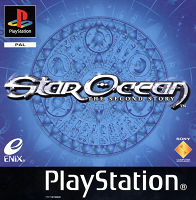
Ultimate action RPG. There's a lot going on here. Gameplay's pretty fun, with a dozen characters of which two thirds that are reasonably human controllable and the battles are filled with strong 90s dub voice acting and nice looking moves. The biggest deal is though how detailed the game world is.
SO2 uses prerendered background technology to its utmost and so the locales look amazing, and are accompanied by soundtrack from a motivated Motoi Sakuraba on top of his game. They're not just pretty to look at, though: there are a lot of things that go outside the scope of a typical game experience of conservation of detail and exist for the sake of making the world richer. For instance, the second town you encounter has a jam shop. While all kinds of jams are usable items, this is probably not relevant to 99% of players. There is no compulsion to minmax jam and no FOMO for missing out on something important if you don't buy jam. But there is a jam shop and you can buy jam and use it and that is wonderful.
Party members, too, can develop various life skills and take part in pursuits both useful and frivolous. Item creation allows you to do stuff like create art, write books (which you can then sell to a publisher and gain profits later...), participate in an iron chef contest, create extremely illegal forged documents that allow you to blackmail shop owners, and so on. It's a lot of fun. Another system that exists just to make the world a bit more amazing is private actions, where you can leave your party to their own devices in towns and come across a variety of scenes about what characters get up to in their free time. These kinds of things among others can also affect the character endings, which there exist two of for every single available pair of characters in the game, and some special ones.
That's the kind of game Star Ocean 2 is. One where you can buy bird seed and then summon a bird to do remote shopping for you in the middle of a dungeon, provided one of your characters has sufficient skills in animal training, and one where exploring the world is fast, fun and unpredictable. It's great.
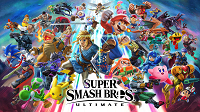
Massive megacrossover roster fighting game that has immediate and responsive controls and easy to execute moves. Ginormous roster each with their own roster to exist and a fun, different playstyle, while being bound to the same input controls as the whole roster so you can pick anyone and quickly arrive at a basic proficiency. Lots of different stages that meaningfully change gameplay and options/modes to tweak things, completely mental amount of music, even a respectable amount of single player things to do sprinkled in.
SSBU is a very kinetic and energizing experience with a clean, gorgeous look to it. The characters' look and animations have a ton of character put to them so even with unfamiliar faces it is easy to grok exactly what they are about - and being a massive crossover game, there are plenty of familiar faces to enjoy, each of them captured faithfully to their original appearances. It's a celebration of video games. Just exactly the kind of thing I would have daydreamed about while scribbling rosters into school notebooks, but actually real.
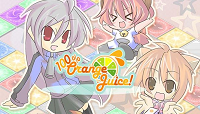
In 2014, I spotted an interesting little fresh game arrival on Steam. A digital boardgame with some sort of dice and card based traversal and combat mechanics and an outrageously cute artstyle. It charmed me at first sight. I waffled on about it, batting various skepticisms in my head around as excuses, but as things tend to go when I get a case of the Curious I inevitably ended up buying it after a few months - and discovered a truly wonderful creation of pure joy.
A crossover world featuring a bunch of characters I wasn't familiar with but instantly developed an interest in and gameplay that looks like unfiltered chaos but has a substantial amount of decision points and even potential for proper bluffs to make the probabilities work in your favor, working the brainmeats in just the way I like, while still staying light enough for the laughs and memes when ridiculous occurences happen. And the card and character art, dialogue that is just the right amount of light and frothy, excellent selection of free music libraries! A lovely little thing to play around with...
...and then it became something more. Others had the same discovery I did, and the game began to get traction far beyond its original doujinsoft release. Orange Juice and Fruitbat Factory together started supporting the game through numerous balance and content patches, new characters, even campaigns and voicework. Six years later, it is still going strong, with something like six times the features it had on release. 100% Orange Juice is quite simply the ultimate digital boardgame and a sublime multiplayer experience that radiates good vibes. Doujin soft best soft.
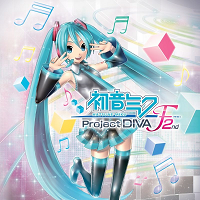
Also in 2014 (big year, huh) at a meetup I glanced over to another room and saw a Miku game being exhibited. Having heard the name before but entirely dismissed looking into it further for some stupid reason or other my then self had, I decided to entertain this nonsense and watch for a while.
A week later I was entirely hooked into the wide world of Vocaloid.
On a technical level PD in its various forms is the platonic ideal of a rhythm game. Clean interface with simple prompts, interesting unique visuals for each song, wide and excellent selection of music with lots of different difficulty levels and rating targets to go for. What brings the charm, however, is the vocaloid element. All the music features vocals by the six Cryptonloids, as well as theme-appropriate music videos featuring them in their various dress modules. The PDF games also have some extra elements that add a bright sense of personality to the whole thing such as animated results screens with voice clips, customizable decorative frames during songs and an idle room screensaver deal. PDF2 even offers english localized subtitles. PDFT is a more arcadey experience for pure rhythm game mania missing some of the flair, but compensates with its jawdropping 200+ setlist.
Through getting hooked into the interesting music and characters, I got into Vocaloid culture in general, and it is a source of wonder. Because there is no singular artist, rather a collective of countless composers who use Vocaloid as their voice and are able to bring their songs to the world with potentially as little as some computer software, it covers a wide array of genres and topics, many of which can be truly heartfelt and/or transgressive, giving voice to those who would otherwise be without voice of their own. The Project Diva games don't paper over this either, with the setlists being a true celebration of the full potential of Vocaloid. The wellspring of imagination that is the Vocaloid culture is not only limited to music either, bringing with it artists, cosplayers and so on and so forth. It would not be an exaggeration to say that Hatsune Miku's Project Diva opened me up as a person. For that I am grateful.
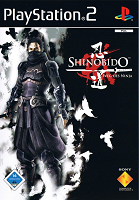
A properly atmospheric ninja stealth game is one of life's greatest simple pleasures. A nice 3D environment, probably in nighttime, a stated objective, patrolling enemies, stealth kills, heavy disincentive to getting spotted, grappling hook, an imperfect way to sense living, limited but creative tools, atmospheric soundtrack. I'm not sure whether playing Tenchu imparted to me part of my patient nature for figuring things out in this framework or I enjoy them because I already had that affinity, but they are a treat nonetheless. Acquire, the visionary minds behind the Tenchu series, are the best of them at making a good ninja game and Shinobido is their magnum opus.
Goh, the protag, got messed up bad and needs to find and recover soul shards to fix that. The three powers of the region - well-meaning but incompetent feudal lord, charismatic cult leader and military commander planning on martial law - claim to hold the answers and make power plays for Goh's allegiance. This manifests in a game structure where you are free to choose which job offers to take, and how you perform affects the power balance and your reputation, leading to various scenarios and endings. Missions are set in a bunch of locations and varied in their objectives. The areas have a good range of variety to them from sleepy residential areas to challenging vertical peaks to well-guarded military encampments. Objectives encompass your usual assassinations and eliminations, but also may involve scouting, escorting or interrupting a convoy, stealing, guarding a person, and other variants besides. At home between missions you can read letters, buy stuff, look at job offers, perform alchemy and tend to your house and garden which will occasionally get targeted by bandits and your goal is to prevent your stuff from getting stolen - which gets markedly easier if you installed traps...there is a lot of play to Shinobido.
How it all plays out is also aces. Sneaking around is very precise and you have access to an excellent amount of verticality thanks to your grappling hook. Various tools and alchemized gimmicks can help you with poking holes in defenses of enemy patrols, or help you survive an encounter should you come under attack. There is also the excellent decision where rather than just making you slow and weak to encourage stealth Goh is fast if he needs to be - but going fast is very slippery. Combine this with a satisfying physics engine and it's more like you are playing a fuckup superman than a frail creature of shadow, and that's wonderful. Being patient and coming up with a perfect plan is rewarding, but messing up technique and being forced to improvise is also rewarding. Action gameplay doesn't get better than that.
Acquire's ninja games come with a robust level editor and Shinobido is no exception. The game has a bunch of premade mission editor missions to mess around in, but an even better thing to come out of it is Shinobido: Takumi, a plus disc that consists of the best levels that were submitted to the developers on memory cards by the fans. There are over 100 of these and they can be some real out there stuff. You've got your normal and extreme sneaking levels of course, but there's racing, physics puzzles, mass explosions and an enormous number of new and exciting ways to get mauled by the eternal nemesis of ninja, the wild bear. Ninjas rock.
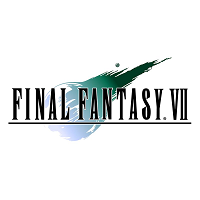
What can I say? One of the games that undeniably makes up my heart's hometown. A mysterious adventure that is never boring, and never taxing. A series of moods evocatively painted by unbelievable prerendered art and an incredible soundtrack. A game that has a very strong storyline with characters that are more than they appear, but also has a wicked sense of humor and isn't afraid of its characters being dorky at times. A world filled with wonder, truly incredible sense of design that extends to a large variety of interesting enemy encounters.
A game that is full of incompleteness and mysterious loose ends, but one that still comes together to be a cohesive and fully satisfying whole. A game I have spent a large amount of time exploring, and modifying to truly make the underlying systems and potential sing. A game that is constantly changing as it goes, with all kinds of things that are there only for their own sake. It is all these things that make this game truly beautiful, as much a masterwork for fun and expression as for intrigue and gravitas.
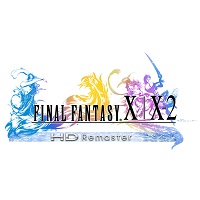
Final Fantasy X is very solid experience. Good turnbased combat, some amount of freedom in character building, gorgeous world, story with pathos, nice characters, all that.
That is the story that is told so X-2 can exist.
Simply put, X-2 is most likely the videogame that has given me most happiness. Incredibly ultimate experience that is based around the world after the story, and how people and communities continue to live and mend themselves. There's a nice wrap-up story to tie it all together, but most of the game is about freeform visiting locales around the world and interacting with the communities.
There are a lot of subscenarios that touch up on all the characters you met on the pilgrimage road of FFX and more besides, and most of these have multiple ways they can play out and conclude based on your actions. And the world is bursting with things to do. From getting involved with a goofy whodunit, to monster gambling, to math esport championships, to digging around in the desert...it goes on and on. There are always more novelties to see and do.
The combat is a delight too, with a job system outright based on a variety of fashionable and colorful outfits that look amazing and have a good amount of play variety, and a loose ATB system that enables chaining actions together and moves along at a nice pace. And with the Last Mission additions to the game we get monster catching and raising(!!!) and a straight up mystery dungeon mode with unique mechanics based on dressphere system(!!!!!!!!). Games are wonderful.